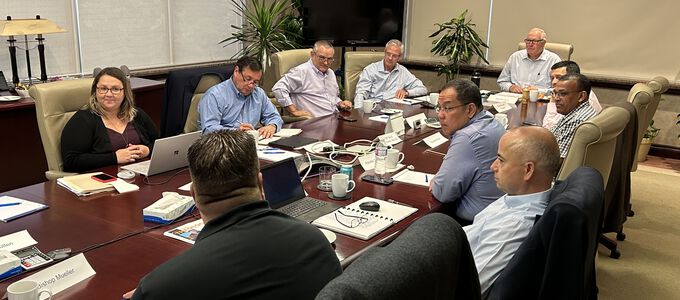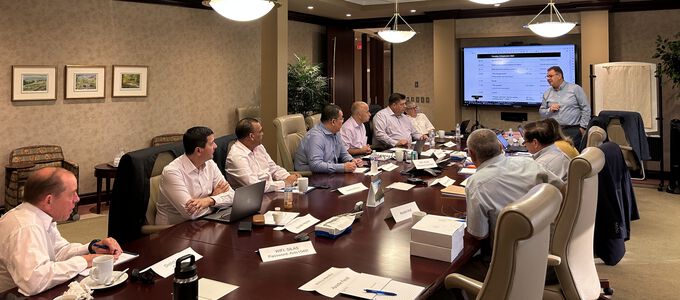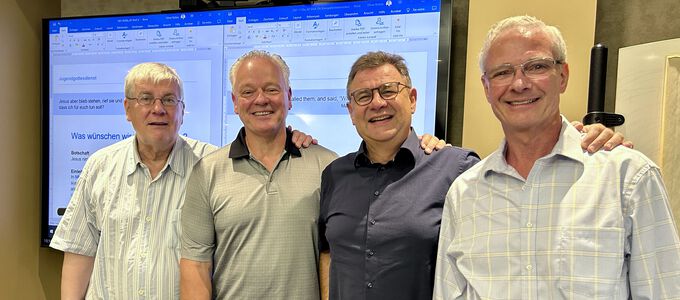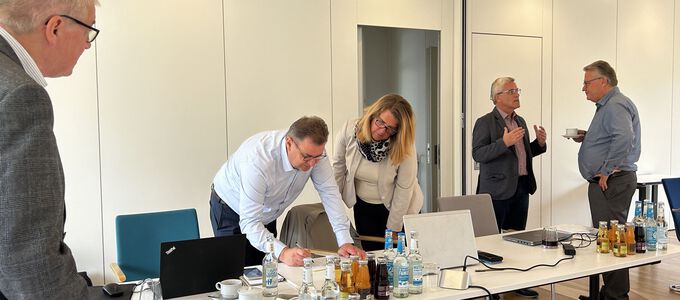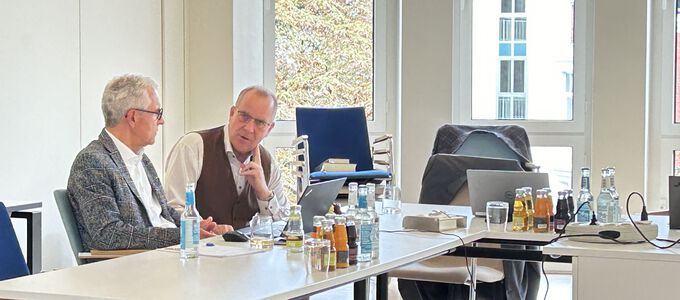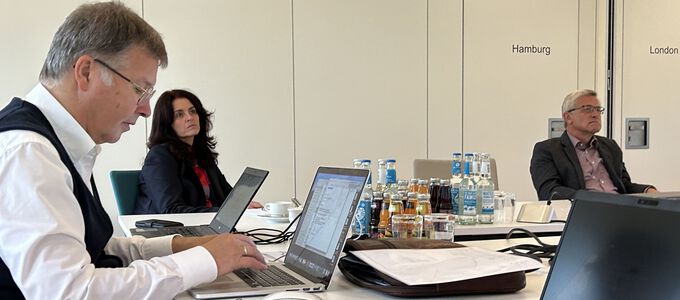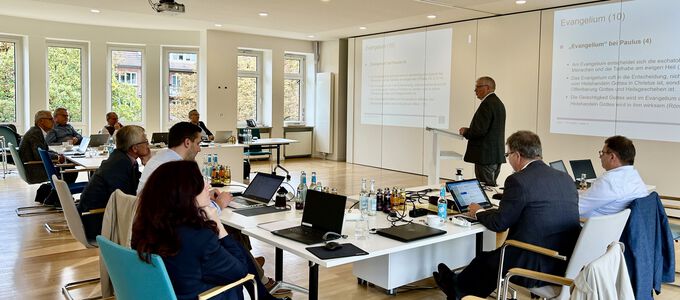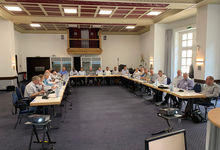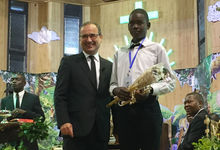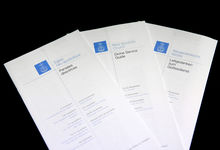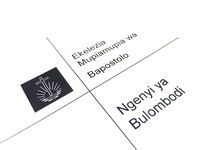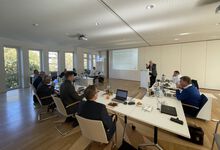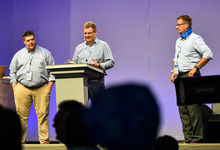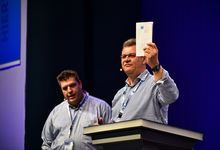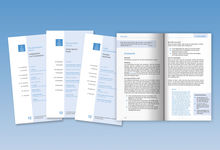Guide posts on the road to preaching
The Divine Service Guide is the most read and most listened to publication of the New Apostolic Church. Recently, workshops on two continents put the focus on this publication. Let’s take a look at the planning and groundwork.
No, the Divine Service Guide is not a template for a sermon, but forms the basis for one: the individual contributions are devoted to a specific theme and are based on a predefined Bible passage, which is interpreted. This then is the starting point for the officiants from where they can develop thoughts for a sermon that is appropriate for their respective congregation.
Articles written by Apostles
The articles for the Divine Service Guide are written by Apostles based on a pre-determined set of sermon series that are planned well over a year in advance. The annual authors’ workshops are important stages in this process. The English-speaking authors made up of participants from Africa, America, and Asia met in Waterloo, Ontario (Canada) at the beginning of September this year. And the German-speaking team met in Hamburg, Germany, in mid October.
In Canada, the first item on the agenda was ongoing work, namely the discussion of individual contributions. Planning for the coming years also featured prominently—also at the meeting in Germany. The sermon series for our church services in 2024 were presented. There was also a discussion of the themes that will be used for youth services in 2025.
Two terms, many meanings
Background work and creating a good basis is a regular feature of these workshops, which is done in the form of theological presentations. This time, the subjects discussed were “The gospel” and “Free will”.
The lecture on the gospel focussed on how the term was understood in ancient daily life, in the gospels of the Bible, and in the letters of the Apostles. Consequently, “gospel“ is therefore not only the content of Christ’s teaching, but also its proclamation, not only the preaching of Jesus, but also His actions, and not only Christ’s life on earth, but also His future saving activity.
“Free will” is generally understood to mean a person’s self-determination, which is realised in the choice of a goal and the attempt to achieve it. The lecture highlighted various philosophical, psychological, and biblical approaches as well as the theological perspective. Free will is a gift from God that cannot be regarded independently of Him, and be seen as a mere attribute of human beings. When human beings decide against God, they decide against themselves, against their reason for life, their interests, and their freedom.
A liturgical collection brings individual volumes together
In addition to the usual agenda, the working group also discussed the plans for a collection of liturgical texts, which is due to be published next year. It combines the four existing special editions of the Divine Service Guide on the topic of our liturgy into a single publication. The individual volumes date from 2010, 2013, 2015, and 2020 and therefore do not include individual aspects from the Catechism (2012), nor the changing concept of ministry (2019), nor the ordination of women (2023). The final touches were presented at these workshops.
A special moment was the farewell to District Apostle Helpers John W. Fendt from the USA and John Sobottka from Canada, who have in the meantime retired and are now also leaving the group of authors. They looked back with gratitude and appreciation on the development that began in 2008 with the transition from the then Word of Life to the Divine Service Guide.
Article info
Author:
Date:
Keywords:
Andreas Rother
14.11.2023
ministry,
work-/project groups,
Doctrinal statements,
Doctrinal instruction


